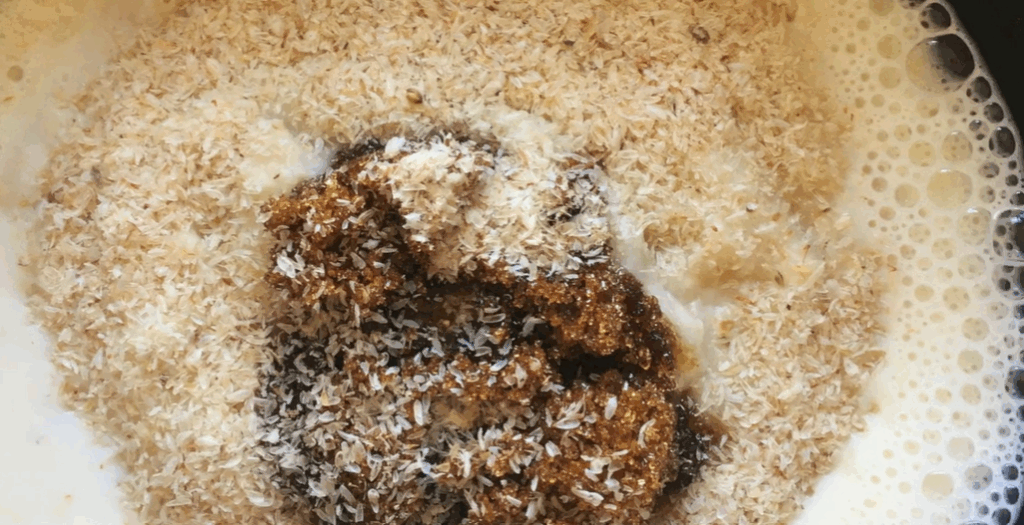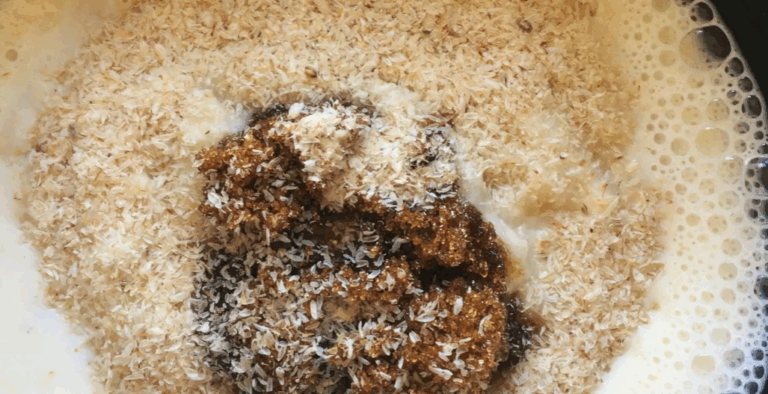| Feature | Details |
|---|---|
| Source | Plantago ovata, a shrub grown in India and the Mediterranean |
| Common Form | Powder, capsules, tablets |
| Primary Benefit | Soluble fiber that supports digestion and satiety |
| Weight Loss Role | Helps increase fullness, regulate blood sugar, and improve digestion |
| Typical Dosage | 3.5g to 10.8g per day before meals |
| Best Known Product | Metamucil (contains psyllium as main ingredient) |
| Similarity to GLP-1 Drugs | Mimics fullness effect without hormonal interaction |
| Other Health Benefits | Reduces cholesterol, stabilizes glucose, relieves constipation |
| Who Should Avoid It | People with GI obstructions, esophageal issues, or on specific medications |
| Medical Reference | pharmacist.com |
While the majority of people resort to extreme cleanses and trendy medications in an attempt to lose weight, psyllium husk has been a surprisingly inexpensive alternative. Frequently promoted as a digestive aid, this natural fiber has quickly become popular as a surprising weight-loss aid, particularly as more people look for alternatives to medications like Ozempic. Similar to building a dam across a continuously flowing river, psyllium produces a thick gel in the stomach that prolongs the feeling of fullness and encourages consuming fewer calories throughout the day.
The husk of psyllium isn’t spectacular. It doesn’t come with a celebrity endorsement plastered all over social media or guarantee drastic changes over night. However, it does provide consistency. It is especially useful in a health culture that is becoming overtaken by extremes because of its quiet dependability, which is similar to that of a trusted friend or a favorite walking path. Smaller portions and less late-night snacking result from psyllium’s ability to slow digestion and help people feel fuller sooner when taken before meals.
Recent research has significantly advanced our knowledge of psyllium’s effects on metabolism and weight. A consistent daily intake of 10.8 grams, timed just before meals, was found to be significantly effective in reducing body weight by 2.1 kilograms, waist circumference by 2.2 centimeters, and BMI by 0.8 units over roughly five months, according to a 2023 review published in the Journal of the American Association of Nurse Practitioners. When considering heart health and metabolic function, these figures may appear modest, but they are remarkably effective for people who have struggled with weight for a long time.
By emphasizing satiety and glycemic control, psyllium actively promotes better blood sugar rhythms in addition to helping people consume fewer calories. This is especially helpful for people with Type 2 diabetes or insulin resistance. Psyllium is now suggested by some doctors to assist patients in bridging the gap between glycemic targets and dietary goals. Endocrinologist Dr. Steven Batash provided one of the most convincing comparisons, referring to psyllium as “the dietary equivalent of a dimmer switch”—one that gradually lowers appetite and food volume without causing the severe cravings rebound that is frequently observed with restrictive diets.
As health care costs continue to rise, psyllium’s accessibility is particularly noteworthy. It’s widely accessible at pharmacies, surprisingly inexpensive, and frequently found in cereals and multipurpose supplements. Although cheeky, its status as a “poor man’s Ozempic” highlights its potential to democratize weight-management resources that were previously only available to those with access to upscale nutritionists or prescription drugs.
However, the advantages of psyllium extend beyond the digestive system. It is a prebiotic fiber that is silent but essential for nourishing the good bacteria in our stomachs. By supporting these microbial colonies, which have an impact on everything from immunity to mood, psyllium helps create a more robust internal ecosystem. It’s similar to planting wildflowers in a field that has been neglected; the resulting bloom is not only structurally altered, but also different in appearance.
Anecdotal evidence from wellness communities supports the findings of research. Adding psyllium to a morning smoothie “basically reset my portion control,” according to one Reddit user, while another said they felt “fuller without the mental game of talking myself out of snacks.” Even though they are unofficial, these testimonies show a growing desire for tools that are gentle but actually effective.
Psyllium husk is timed to cause a pause in the body’s digestive rhythm, usually 30 minutes before breakfast and dinner. By the time a meal starts, decisions are more thoughtful and hunger is less pressing. On a daily basis, this small change might not seem like much, but over the course of weeks and months, the cumulative effect becomes evident.

The message is still grounded for patients: psyllium husk is not a panacea. It won’t replace sedentary lifestyles or bad eating habits. But it’s very adaptable when combined with a lifestyle that already tends toward healthier choices. You can fold it into yogurt, stir it into juice, or even bake it into low-carb muffins. Due to its tasteless nature, it blends in perfectly and doesn’t require significant meal adjustments.
Health care providers stress the importance of staying hydrated. Psyllium must be taken with at least 6 to 8 glasses of water each day to avoid constipation or, in rare instances, choking because it expands when combined with liquid. It has been demonstrated that bloating and other early side effects can be considerably decreased by starting with a lower dose and progressively increasing intake.
Psyllium may interact with some medications, such as diabetes medications, antidepressants, and cholesterol-lowering therapies. For this reason, doctors frequently advise separating doses and discussing all prescriptions with a pharmacist or dietitian. Despite their simplicity, these actions are essential to guaranteeing the safe and successful integration of psyllium.
Socially speaking, the resurgence of interest in psyllium signifies a move away from aggressive, quick-fix culture and toward long-term, biologically sound solutions. Wellness influencers have quietly embraced it, sometimes without mentioning the ingredient by name but gushing about the “fiber drinks” that help their gut health and skin clarity. Sales of fiber supplements have increased as a result of this subtle endorsement without the need for overt advertising.


